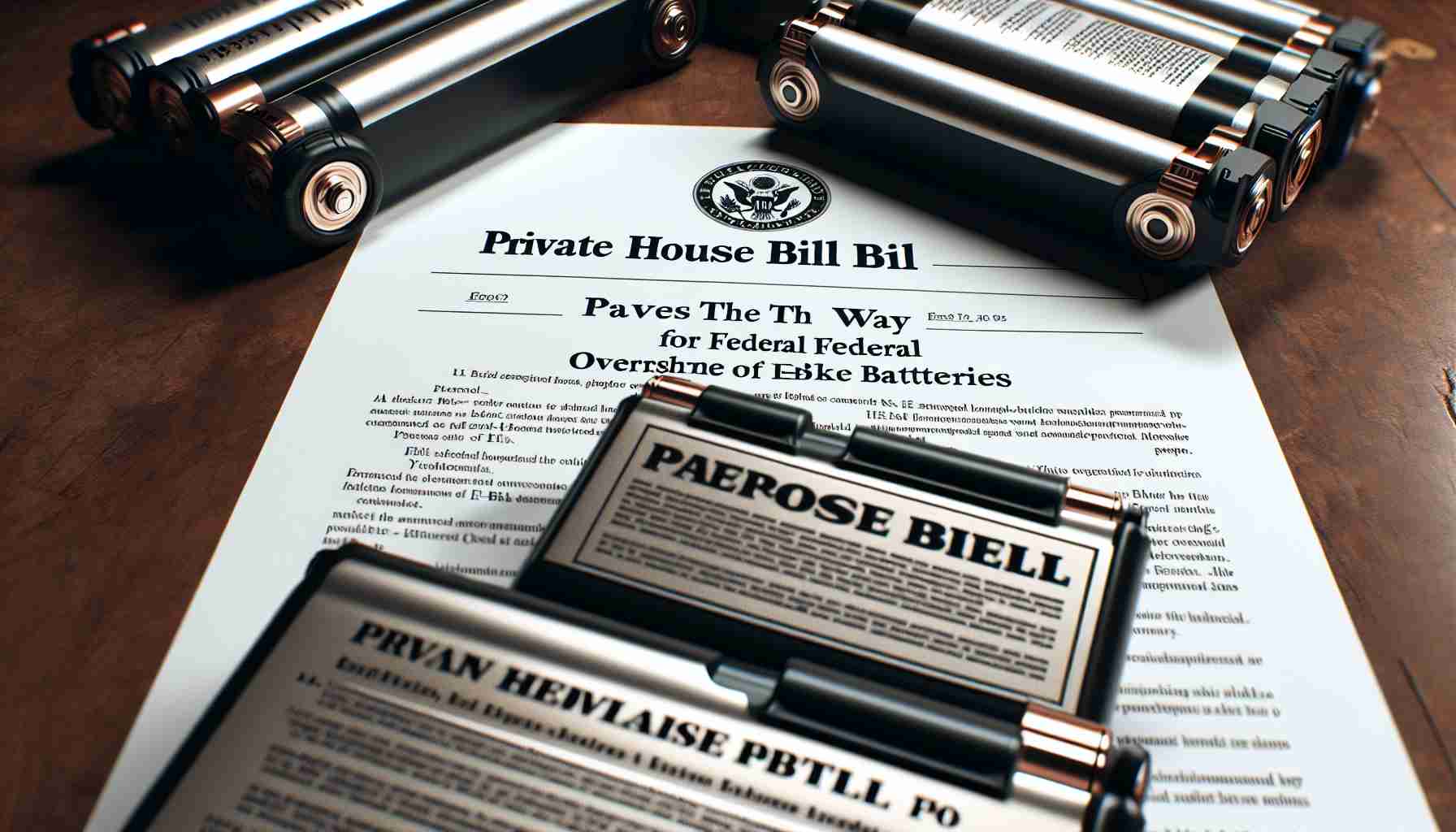The recent passing of a House bill that aims to regulate the sale of e-bike batteries is set to revolutionize efforts in combating the risks posed by these potentially hazardous devices. With numerous battery-related fires plaguing New York City, city and federal officials are hailing this legislation as a game-changer.
HR 1797, sponsored by Rep. Ritchie Torres (D-The Bronx), received an overwhelming bipartisan vote of 378 to 34 in the U.S. House. The bill mandates the Consumer Product Safety Commission to establish safety standards for micro-mobility devices and their batteries. The resulting effect of the law would be a ban on the sale of uncertified batteries, effectively ensuring that lithium-ion batteries in the American market are manufactured safely.
The bill now awaits consideration in the Senate, where it is sponsored by Sen. Kirsten Gillibrand (D-N.Y.) and enjoys bipartisan support. Senate Majority Leader Chuck Schumer, also a Democrat from New York, is a co-sponsor of the bill and holds substantial influence over its passage in the Senate.
As Commissioner Laura Kavanagh of the City Fire Department expressed, federal oversight is a much-needed intervention. For years, her department has been grappling with the increasing number of fires caused by lithium-ion batteries, resulting in fatalities and injuries. The new legislation would eliminate the sale of dangerous batteries at the point of purchase and enable authorities to seize uncertified batteries in larger quantities, rather than resorting to their seizure one by one.
New York City has attempted to address the issue through local laws, but the sale of uncertified batteries has persisted both online and in stores across the five boroughs. The Federal oversight provided by the bill would introduce stricter regulations, creating a disincentive for manufacturers to continue producing these hazardous devices.
Rep. Torres emphasizes that self-policing by sellers has been inadequate, allowing fire hazards to be legally sold. However, with the impending federal oversight, there will be greater control and accountability in the market.
With strong confidence in the bill’s success, Rep. Torres is optimistic that the legislation will be signed into law within a matter of weeks or months, ultimately prioritizing the safety of consumers and curbing the risks posed by e-bike batteries.
The e-bike industry has seen significant growth in recent years, with more and more people turning to electric bikes as a convenient and eco-friendly mode of transportation. However, the industry has also faced challenges related to the safety of e-bike batteries. The recent passing of HR 1797, a House bill aimed at regulating the sale of e-bike batteries, is expected to revolutionize efforts in combating these risks.
The market forecast for e-bikes is quite promising. According to a report by Market Research Future, the global e-bike market is expected to reach a value of $38 billion by 2025, growing at a compound annual growth rate of 9.01% during the forecast period. This indicates a strong demand for e-bikes and the potential for significant growth in the industry.
However, the safety concerns surrounding e-bike batteries have cast a shadow on the industry. Lithium-ion batteries, commonly used in e-bikes, have been known to pose fire hazards if not manufactured and handled properly. With numerous battery-related fires plaguing New York City, the need for regulation and standardization in the industry has become apparent.
The passing of HR 1797 is a major step towards addressing these issues. The bill mandates the establishment of safety standards for micro-mobility devices and their batteries by the Consumer Product Safety Commission. This would effectively ban the sale of uncertified batteries and ensure that lithium-ion batteries in the American market are manufactured safely.
Currently, the bill is awaiting consideration in the Senate, where it is sponsored by Sen. Kirsten Gillibrand. The bipartisan support for the bill, including the backing of Senate Majority Leader Chuck Schumer, suggests a positive outlook for its passage in the Senate.
The City Fire Department in New York City has been dealing with an increasing number of fires caused by lithium-ion batteries for years. Commissioner Laura Kavanagh has expressed the urgent need for federal oversight to address this issue. The new legislation would not only eliminate the sale of dangerous batteries at the point of purchase but also enable authorities to seize uncertified batteries in larger quantities, making it easier to tackle the problem.
While New York City has attempted to address the issue through local laws, the sale of uncertified batteries has persisted. The federal oversight provided by HR 1797 would introduce stricter regulations, creating a disincentive for manufacturers to continue producing these hazardous devices. This would have a significant impact on the e-bike industry, ensuring that consumers have access to safe and reliable products.
Rep. Ritchie Torres, the sponsor of the bill, has emphasized the inadequacy of self-policing by sellers, which has allowed fire hazards to be legally sold. With the impending federal oversight, there will be greater control and accountability in the market. Rep. Torres is optimistic about the bill’s success and expects it to be signed into law within a matter of weeks or months.
Overall, the passing of HR 1797 is a significant development for the e-bike industry. It not only addresses safety concerns related to e-bike batteries but also lays the foundation for stronger regulations and standards in the market. This is crucial for ensuring the safety of consumers and curbing the risks posed by e-bike batteries.






















